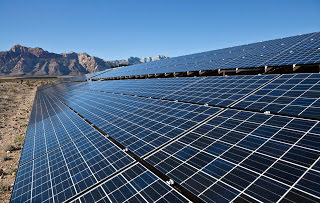During the summer of 2014, just before Mexican energy reform was enacted, developers rushed to file power generation permits for their projects so that they could keep certain benefits of the then-existing legal regime. Today, such projects, which are known as “grandfathered” or legacy” projects, are very attractive to investors.
The Electricity Industry Law was enacted on August 11, 2014. It created two parallel legal regimes: (i) a so-called “legacy” or “grandfathered” regime granting vested rights to projects holding a power permit or an application filed with the Mexican Energy Regulatory Commission (the “CRE”) before the enactment of the Electricity Industry Law, and (ii) an “electricity market” regime under which projects are subject to burdensome regulations affecting congestion, financial transmission rights, and transmission and distribution fees.
Grandfathered projects maintain certain benefits that existed under prior law for the term of their corresponding interconnection contracts. (All power projects governed by the old law (called the “Electric Power Public Utility Law” or “Ley del Servicio Público de Energía Eléctrica”) are required to hold an interconnection contract with the former operator of the national electric grid, the Federal Electricity Commission or Comisión Federal de Electricidad (the “CFE”).) The interconnection contracts may be subject to amendment except with respect to contract term and capacity. Grandfathered projects must also comply with certain investment milestones, including evidence of 30% investment by December 2016.
The benefits granted to the grandfathered projects are mainly: (i) access to the “bank of energy” and (ii) a “stamp post” wheeling charge.
During the first decade of this century, the Mexican Government created two key regulatory instruments to foster and attract investment in the renewable power industry. The first was the creation of the bank of energy. The bank of energy allows a renewable source project to generate and deliver power to the grid at any time, and receive credit regardless of whether the power was taken by the off-takers. For instance, a solar project that sells power to a municipal public lightning authority may deliver its output during the day when prices are lower, and the CFE will deliver the same amount of electricity to the relevant off-taker at night when prices are higher.
The “stamp post” wheeling charge is also a significant benefit. Many renewable projects in Mexico are located far from the areas of greatest demand. The best example is “La Ventosa” in the south of Mexico, where the wind resource is extraordinarily good, but the project is far from most of the off-takers’ load points, which are located in the central and northern parts of Mexico. This results is high “wheeling” or transmission costs. In light of the above, the Mexican government created a flat transmission fee. This flat transmission fee makes remote renewable projects more competitive by allowing the payment of a flat fee per MW of wheeled electricity regardless of the location of the load points. Such projects are then able to avoid congestion risk and associated wheeling costs.
Another key benefit in the grandfathered regime is that neither off-takers nor generators have to provide mandatory dispatch information to the system operator to request gas or power on a day-ahead basis. Most renewable projects are under to “take or pay” arrangements where the off-taker must take the output or pay a penalty, so such a requirement is an unnecessary regulatory burden.
Grandfathered projects are a great opportunity to anyone interested in participating in the Mexican power market.
Mexico’s grandfathered power projects: an opportunity for investors
July 05, 2016
Posted in Blog article


